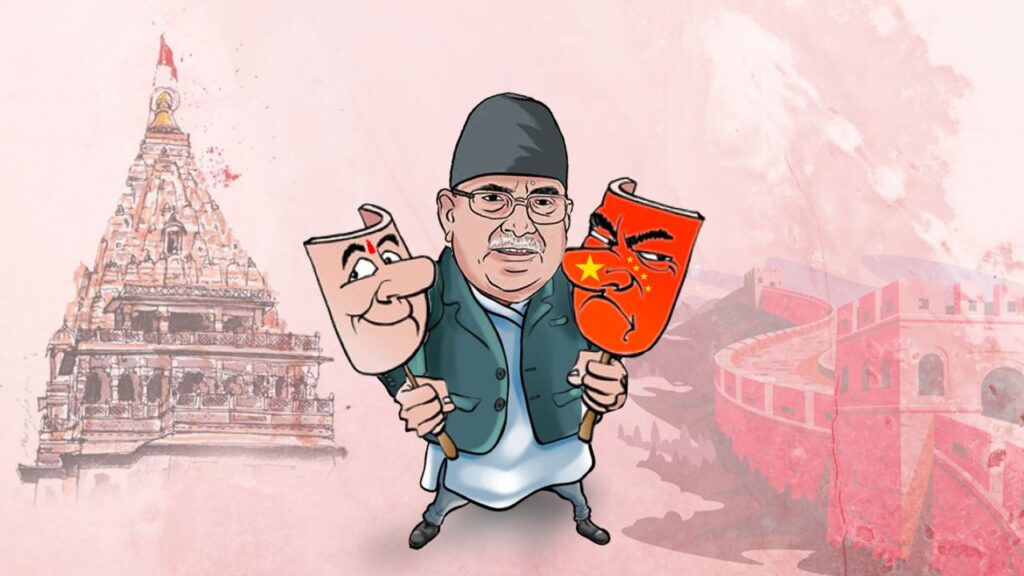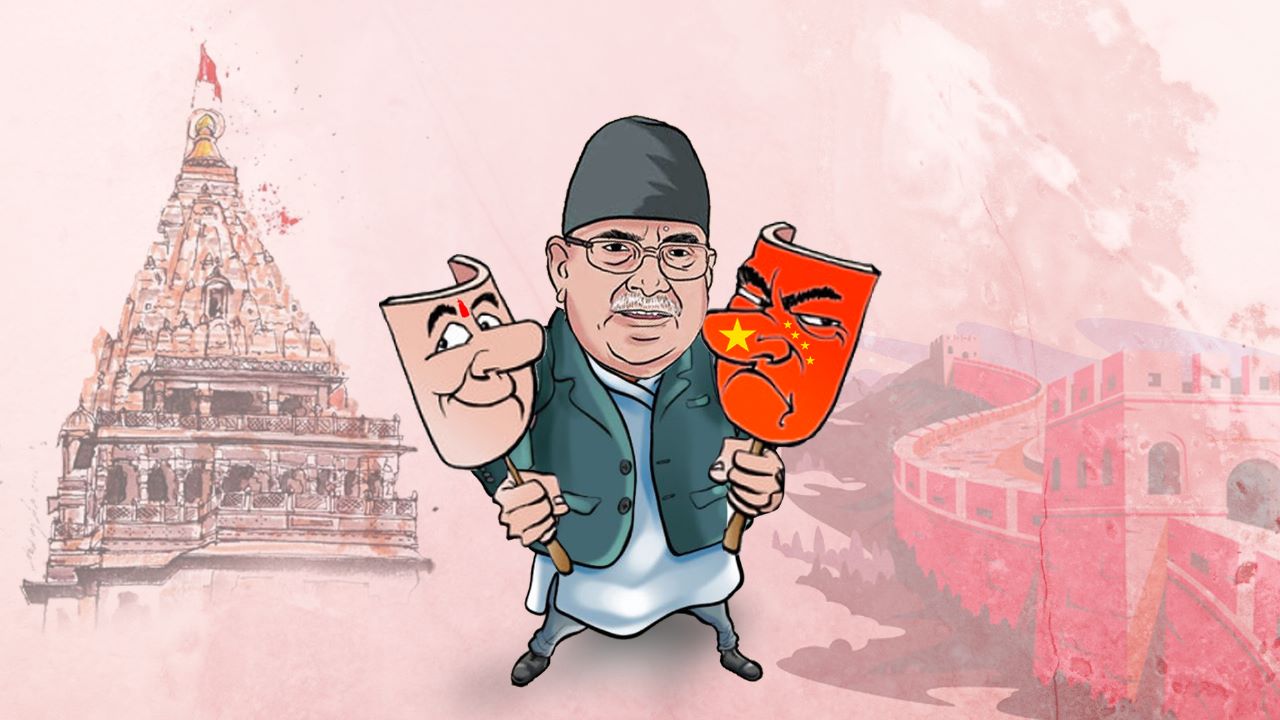
Maoist guerrilla turned Hindu protagonist?
Prachanda’s puja at Mahakaleshwar is more tactical transformation to mollify India; political success and survival back home
Yubaraj Ghimire
On May 31 evening, Nepal’s Prime Minister Pushpa Kamal Dahal (“Prachanda”) raised his hands in welcome and signalled Manjeev Singh Puri, asking the former Indian Ambassador to Nepal to approach him at a reception held in his honour at the country’s embassy in New Delhi. “I have not forgotten… you asked me several times when will I wear Daura-Suruwal. Look, I have done it.”

Prime Minister Dahal donned Nepal’s official and traditional dress for the first time during a trip abroad. Dahal and his party – the Communist Party of Nepal (Maoist-Centre) – have consciously avoided wearing traditional attire to maintain the radical and revolutionary image. That image was sacrificed on his trip to India.
On third day of his trip, Dahal not only visited Indore but performed an elaborate puja at Mahakaleshwar temple in Ujjain. He offered the deity 108-rudraksha bead thread, clad in distinctly religious attire. Dahal was a “revolutionary” whose insurgency saw many incidents of temples being vandalised and those observing rituals (even death rituals) being killed.
He has avoided visiting any temple including Pashupatinath temple in Nepal till now. His religiosity in India, then, may well be taken as a tactical transformation to address the Modi factor – a factor which may be crucial to his political success and survival. Many, then, believe that he has not “transformed” – he has simply been tamed by hostile circumstances and politics. His visit to India five months after he assumed office as PM for the third time was for political management.
Just an hour before his departure, he managed to get President Ram Chandra Poudel to approve the Citizenship Bill that erstwhile President Bidhya Devi Bhandari had declined. Dahal bypassed parliament by getting the cabinet to go for a shortcut. This was done to mollify New Delhi.
India has still not welcomed Nepal’s constitution, promulgated in 2015. Dahal and K P Oli (who was then waiting to take over as PM) turned down India’s suggestion to delay the promulgation till demands of some Tarai-based parties which included the citizenship issue were sorted out. The result was a 134-day-long economic blockade, which led to a sweeping anti-India sentiment in Nepal. Modi also lost a lot of his considerable popularity in the country.
The Citizenship Bill, among other things, provides instant citizenship with all the political and property rights to foreign women married to Nepali men. While the Bill does not address many of the more radical demands, like citizenship to men married to Nepali women, Dahal’s pushing it through likely earns him some trustworthiness in the eyes of Indian establishment. It can be interpreted as a realisation on his part that not listening to India earlier was a mistake.
Dahal had his own reasons to stoop, hoping he will ultimately conquer. Sixteen years ago, the decade-long insurgency – which led to 17,000 deaths – ended in a peace accord following a deal that India brokered between the Maoists and Nepal’s pro-democracy parties. Modi, who came to power in Delhi eight years after the deal, hailed the accord in his first address from the ramparts of Red Fort as a “triumph of the ballot over bullet”. But now, at 71, Dahal faces the prospect of that triumph being bungled. Not only his detractors, but ex-guerrillas and political allies want the gross human rights violations probed and the guilty punished, as pledged in the peace accord signed in November 2006.
Dahal has been trying hard to grant general amnesty to the guilty but as the accord was witnessed by the international community, including the UN, his best option was to reach out to India to bail him out and, if necessary, intercede with Western countries.
Indian authorities appear convinced that the Maoist leader’s offer to side with India in containing China in Nepal and even to put Chinese investments at bay, is genuine. Delhi seems to believe that Dahal continuing as PM would be in India’s interest. Amazingly, he also reportedly assured the BJP that he was no less Hindu than the former King Gyanendra Shah, whose efforts at making a political comeback are getting a huge public response in Nepal. His visit to Mahakaleshwar was evidence of that.
For now, Dahal got what he wanted from Delhi. The two sides signed deals to have Indian Public Sector Undertakings — National Hydro-Power Corporation and Satluj Jal Nigam — to develop the 679 MW Lower Arun and 480 MW Phukot (Karnali) — with India promising to enhance multi-fold the current purchase level (400 MW) of Nepal-generated power. Delhi asserted that no power generated by Nepal companies with Chinese investment will be purchased. This is a clear message that Chinese investment in all major sectors will be discouraged.
Dahal did not quite raise the border dispute – this would have spoilt the positive atmosphere he was trying to create. But this is likely to be seen as a “surrender”, and create a backlash at home. His Delhi visit will be debated, polarising people and parties in Nepal. And that will cost Prachanda the image his “revolutionary past” bestowed on him. In that avatar, the problems with an “expansionist India” used to be a political and diplomatic mantra.
(author is a senior journalist based in Kathmandu. This write up was first published in Indian Express)

